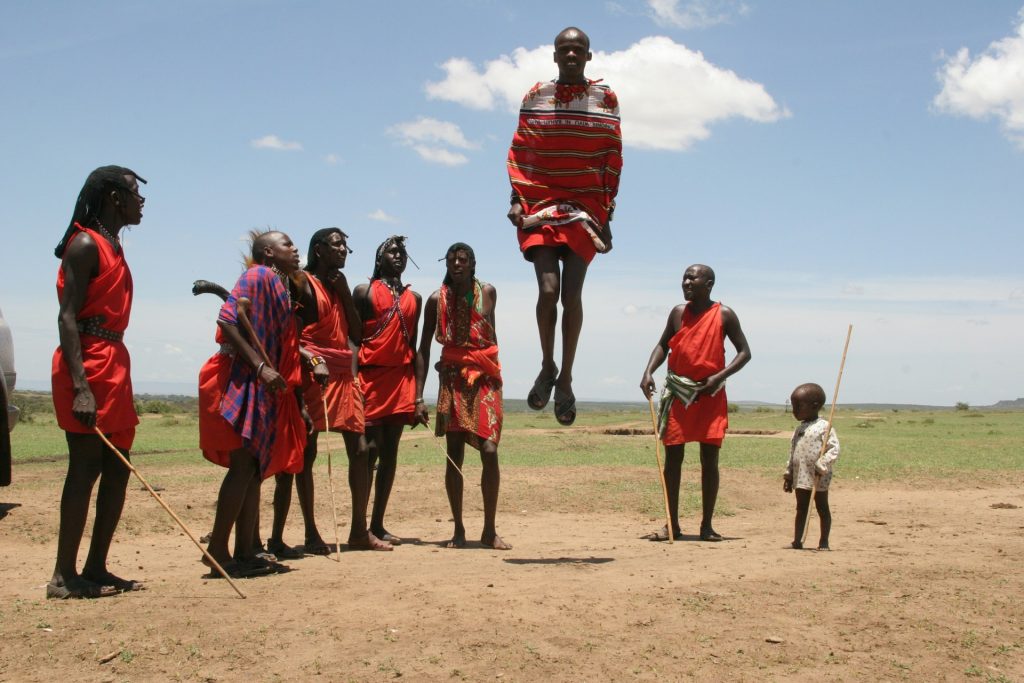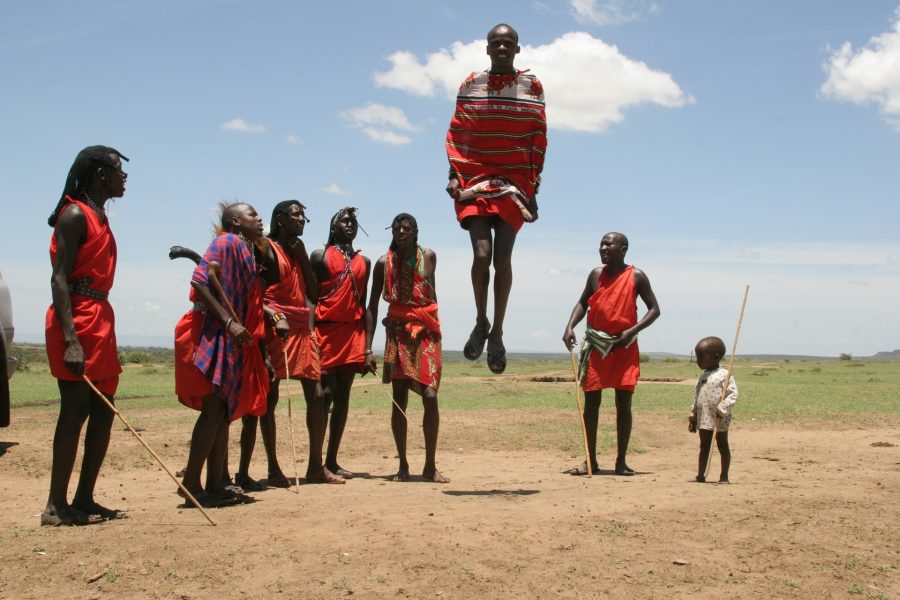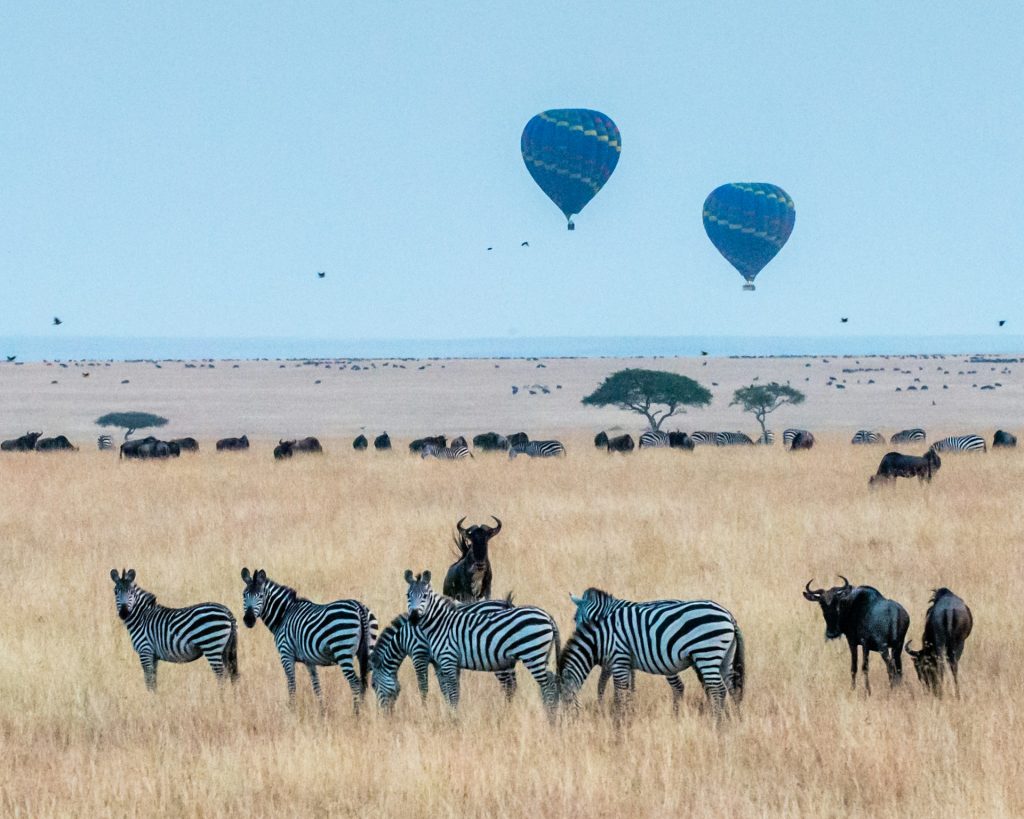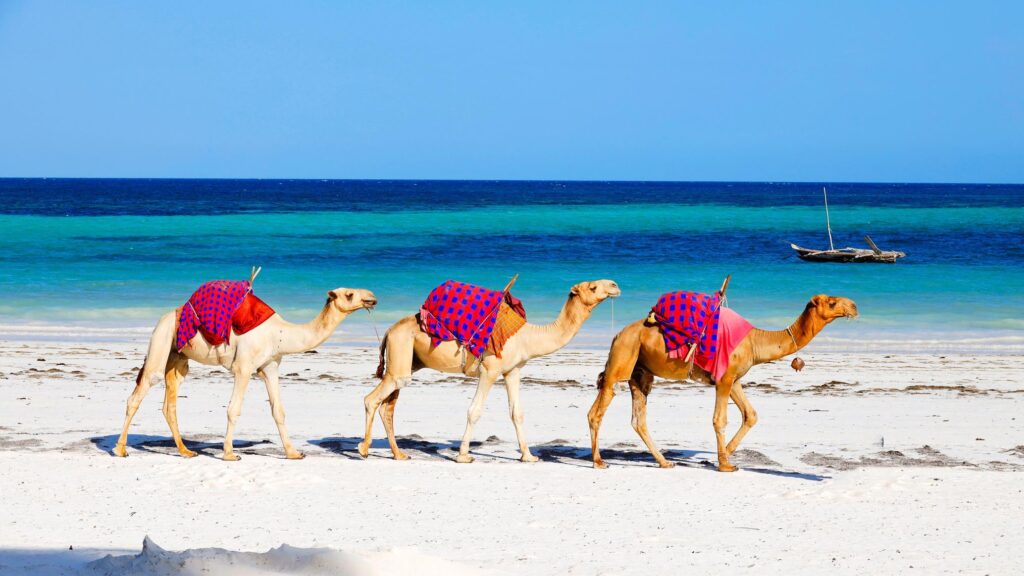Requirements and Essentials to Travel to Kenya

Kenya is a beautiful country with diverse landscapes, wildlife, culture and history. Whether you want to go on a safari, travel as a digital nomad, explore the coast, climb a mountain or experience urban life, Kenya has something for everyone. However, before you pack your bags and hop on a plane to travel to Kenya, there are some things you need to know and prepare for your trip. Here is a summary of the essential information and tips for travelling to Kenya.
Passport and Visa Requirements
1. Passport Validity
To enter Kenya, your passport must have:
- an ‘expiry date’ at least 6 months after the date you arrive
- at least 2 blank pages
You will be denied entry if you do not have a valid travel document or try to use a passport that has been reported lost or stolen.
2. Visa requirements
- All visitors are required to obtain an electronic travel authorization before entering Kenya.
- On 12 December 2023 the President of Kenya announced that Kenya would be visa-free from January 2024.
- All travellers to Kenya will be required to apply and pay for the eTA prior to travel, with exclusion of the travellers with already paid and issued visas will continue to use them for entry until the expiry of their validity.
- For a seamless trip to Kenya,travellers must now complete an electronic travel authorization(ETA 72 hours prior to their travel.
Visitors to Kenya are now required to apply online for an electronic travel authorisation in advance of travel. Some exemptions apply and can be found in full on the website of the Kenyan Civil Aviation Authority.
There are some exceptions to the ETA requirement, such as:
- Holders of valid Kenya passports, permanent residence, work permits or passes
- Holders of valid UN travel documents issued by the Kenyan government
- Members of diplomatic missions and international organizations accredited to Kenya
- Citizens of the East African Partner States (Burundi, Democratic Republic of Congo, Rwanda, South Sudan, Tanzania and Uganda) for up to six months
- Passengers in transit or arriving and leaving by the same ship or aircraft
- Crew members of any ship, aircraft, train, vehicle or carrier
- Owners of private aircraft stopping over for refuelling
- Holders of diplomatic, official or service passports on official duty
- Holders of various types of laissez-passers issued by international or regional organizations
You can find the full list of exemptions on the website of the Kenyan Civil Aviation Authority.
NOTE:
There are no visas issued on arrival in Kenya. You must have your ETA ready before you board your flight. Also, having an ETA does not guarantee your entry into Kenya. The immigration officer at the port of entry may deny you entry if you do not meet the immigration requirements or if your entry is deemed contrary to national interests.
When you apply for the ETA, make sure you fill in the correct information and choose the right category of visa.he visa fees are non-refundable and the High Commission is not responsible for visa applications made through agents or third parties. All foreign documents must be certified and stamped by a notary, solicitor or commissioner for oaths.
Health Requirements
1. COVID-19 Requirements
As of 9 May 2023, the Kenyan government does not require proof of COVID-19 vaccination or a negative COVID-19 PCR test for entry into Kenya. However, if you have flu-like symptoms upon arrival, you will have to fill out a passenger locator form on the ‘jitenge’ platform and take a COVID-19 antigen test at your own cost. If you test positive, you will have to take a COVID-19 PCR test and isolate according to the severity of your symptoms.
2.Yellow Fever Requirements
If you are coming from a country where yellow fever is endemic, you must present a valid yellow fever certificate upon arrival. You can find the list of countries with risk of yellow fever transmission here: https://www.who.int/ith/ITH_Annex_I.pdf
There are some exemptions from the yellow fever vaccination, such as:
- Infants under 9 months of age, unless there is an epidemic and the risk of infection is high
- Pregnant women, unless there is an outbreak and the risk of infection is high
- People with severe allergies to egg protein
- People with severe immunodeficiency due to HIV/AIDS or other causes, or who have a thymus disorder
If you are travelling from the UK, you may not need a yellow fever certificate if you are only travelling directly to and from Kenya. However, this may change without notice, so please check with your doctor and take their advice.
Packing Essentials
To travel to Kenya, what you need depends on the type of trip you are taking and the time of the year you are travelling. However, here are some general items that you should not forget:
Closed-toe walking boots
If you are going camping or hiking, you will need a pair of sturdy and comfortable shoes that protect your feet from cuts, scratches, bites and stings.
Light, loose clothing
You will need a variety of clothes that you can layer up or down depending on the weather. Opt for breathable fabrics like cotton or linen and avoid synthetic materials that can make you sweat. Choose neutral colours like beige, khaki, grey or green that blend in with the natural environment and avoid bright colours or patterns that may attract unwanted attention from animals or people. Ex-military or military-style clothing is not recommended. You will also need some long pants and long-sleeved shirts to protect your skin from the sun and mosquitoes. Don’t forget to pack some warm clothes for the evenings, especially if you are going on a safari or visiting the highlands.
Smart casual outfits
You may want to bring some nicer clothes for going out for dinner or drinks in the cities or towns. A pair of jeans and a shirt or blouse will suffice.
Sandals
You will also need a pair of sandals or flip flops for relaxing at your accommodation, going out for a meal or taking a casual stroll. They are easy to slip on and off and take up less space in your bag.
Warm fleece and a beanie
The days are warm throughout the year, but the nights can get chilly, especially in the early mornings and evenings. You will need a warm fleece or jumper and a beanie to keep you cosy during your game drives or camping trips.
Sun protection
Kenya is located on the equator and the sun is very strong. You will need a wide-brimmed sunhat, sunscreen and sunglasses to shield yourself from the harmful rays. Look for water-resistant and high SPF sunscreen and apply it generously and frequently.
Travel towel
A quick-dry towel is a practical item to bring for camping and showering on the go. It is lightweight and dries fast and does not take up much room in your bag.
Waterproof toiletry bag
A waterproof toiletry bag is better than a soft one as you can hang it in the shower and keep your clothes dry. This is useful if you are staying at camps with basic shower facilities.
Headlamp
A headlamp or torch is handy for walking around the campsite at night. Some camps have limited lighting and are powered by generators that switch off at a certain time. You will need a headlamp to find your way around and go to the bathroom at night.
Personal medical kit
Your guides will have a large first aid kit, but you should bring a small one with you for any minor injuries or illnesses. You should include some antibacterial wipes, antiseptic ointment, bandaids, tweezers, calamine lotion or aloe vera gel, pain killers, electrolytes and anti-diarrhoea tablets. You should also bring any prescription medication that you need and keep it in its original packaging with your name and dosage on it.
Insect repellent
Mosquitoes and other insects are common in Kenya, especially during the rainy seasons. You should bring a large bottle of insect repellent and spray it liberally over your skin, especially on your ankles and other exposed areas. You should also wear long pants and long-sleeved shirts in the evenings and sleep under a mosquito net if possible.
Water bottle
You should bring a water bottle with at least a 1.5 litre capacity and refill it with filtered or bottled water. You should avoid drinking tap water or ice cubes as they may be contaminated. Staying hydrated is important as Kenya is hot and dry for most of the year.
Waterproof/windproof jacket
Some parts of Kenya experience one or two rainy seasons every year. The heaviest rains (called masika) usually fall from mid-March to May and a shorter period of rain (called vuli) occurs in November and December. January and February are mostly dry, but there may be some showers. You should bring a lightweight waterproof jacket to keep you dry and warm in case of rain or wind.
Electrical appliances to travel to Kenya
Chargers
For Kenya, the plug type is G, which has three rectangular pins in a triangular pattern. The voltage is 240V and the frequency is 50Hz. You should bring a universal adapter and a converter if your devices are not compatible with these specifications.
Camera
You should also bring a camera to capture the amazing sights and wildlife that you will see in Kenya. A mirrorless camera is a good choice for a safari as it is lighter and faster than a DSLR. Don’t forget to bring a spare battery or charger as well.
Cash
You can use USD or Kenyan Shillings (KES) in Kenya. However, Kenya is very strict about accepting USD notes that are dated after 2000 and are in good condition.
If you are from the UK or somewhere with an unfavourable USD exchange rate, you may want to get some KES instead. You can exchange your money at the airport, banks or forex bureaus, but keep the receipt as the customs may want to see it.
You should also have some small USD notes, such as $5, for tipping or emergencies. You can use your credit or debit card at some hotels, restaurants or shops, but be aware of the fees and the exchange rate.
You should also inform your bank of your travel plans to avoid any issues with your card.
NOTE:
Plastic bags are banned in Kenya as part of the government’s efforts to reduce plastic pollution and promote environmental sustainability. You should not bring any plastic bags into the country, including the duty-free shop bags or the ziplock bags for liquids or cosmetics.
Luggage Restrictions to travel to Kenya
Weight restriction is also a major key to consider while travelling.
It is important to understand that the reason for the size dimension limitations is that the luggage compartments are small openings on the side or base of the plane.
In Kenya, two airlines that fly domestically to safari airstrips are Air Kenya and SafariLink. These airlines have different luggage allowances.
Nairobi Wilson Airport
Safarilink restrictions:
15 kg per person including your main duffel bag and hand baggage (all bags must be soft-sided bags). On the Safarilink website, the maximum dimension of all bags is 70cm x 60cm x 30cm.
Air Kenya restrictions:
15 kg per person including duffel bag and hand baggage (must be soft-sided bags). The maximum dimensions of checked baggage are 60cm x 45cm x 33cm. The maximum dimensions of hand luggage are 53cm x 30cm x 23cm.
Make sure to check your own airline’s regulations to verify that you take the right size bag.
If you are bringing camera equipment, there will likely be a weight restriction. The equipment should fit into your hand baggage and not exceed the baggage weight limit along with the rest of your belongings.
Leave a Reply
Your email address will not be published. Required fields are marked *



Leave a Reply